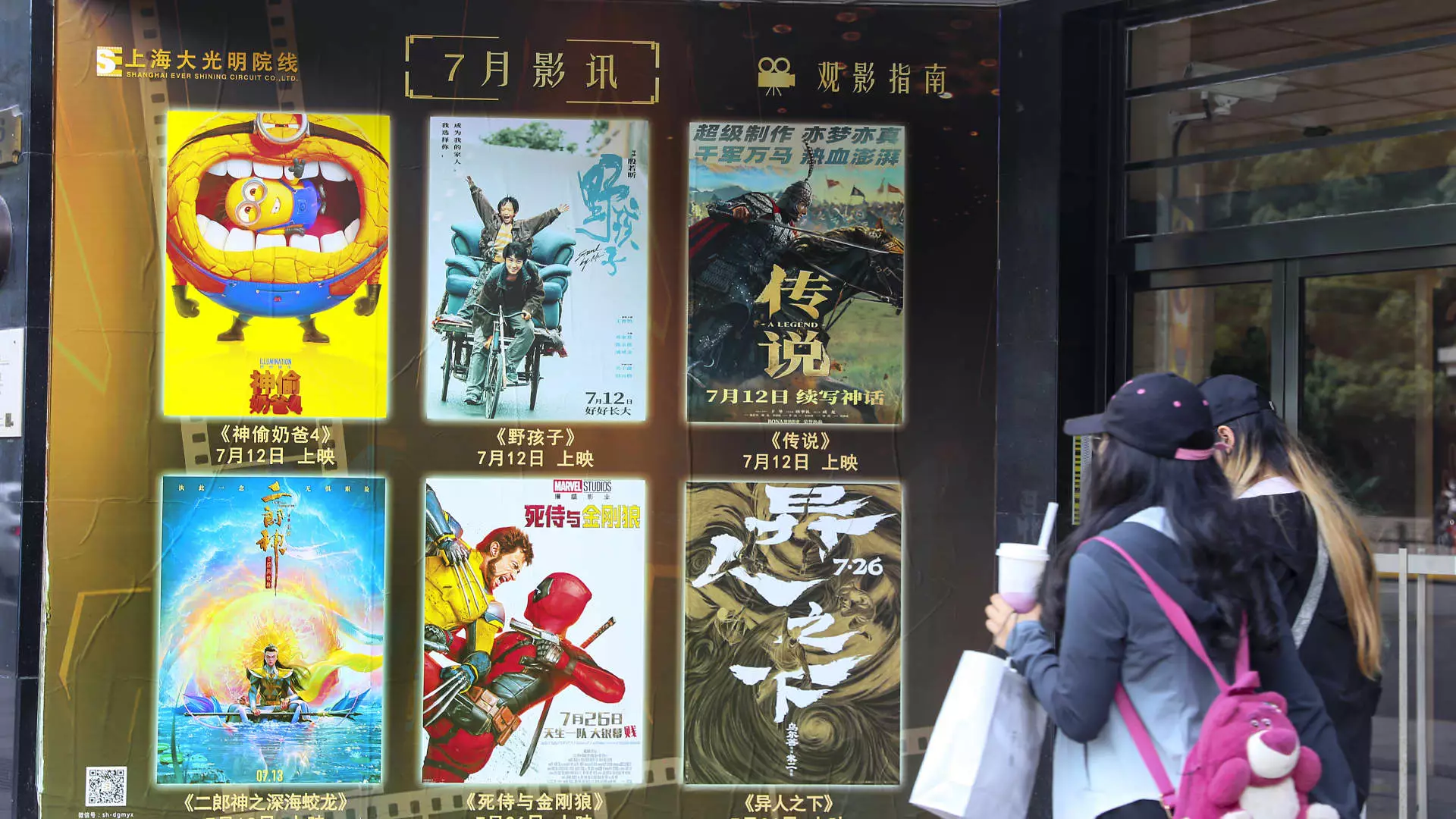In recent years, the relationship between Hollywood and China has taken a dramatic turn for the worse. Once a lucrative market for American films, China is now tightening its grip on imports, sparked by President Trump’s trade war. The escalating tariffs have become an unwelcome backdrop for cinematic giants like Disney and Warner Bros., sending their stock prices into a downward spiral. As adroit as Hollywood executives may be, they are now faced with an unwinnable game, where their past strategies are failing in a new landscape – leaving them at the mercy of geopolitical shifts.
The lavish Chinese cinema landscape that once rolled out a red carpet for American blockbusters has gradually turned into a battleground as local productions gain ground. The once-steadfast mantra of ‘globe-spanning Hollywood success’ seems increasingly frail. Investors and insiders alike must now grapple with the harsh reality that subpar returns from the Chinese box office could spell disaster for their bottom lines. With domestic Chinese films dominating viewership, perhaps it is time for Hollywood to update their playbook – or face a grim future.
Unveiling the New Cinema Titans
Once a gold mine for U.S. filmmakers, the Chinese market is no longer the cash-cow it once was. The rise of local filmmaking has birthed its own brand of cinematic titans, fueled by cutting-edge technology and a growing pride in home-grown narratives. Anecdotal evidence suggests that audiences are prioritizing films that reflect their own cultures and experiences, making it harder for American studios to justify the investments they once made for the Chinese release.
“In the past, a film’s success in China was almost a guarantee if the marketing was right,” says media scholar Aynne Kokas. “Now, with the end of the U.S.-China Film Agreement, studios might as well invest that effort elsewhere, because they can no longer depend on the Chinese ticket sales to enrich their balance sheets.” With local films breaking box office records previously reserved for Hollywood, it begs the question: is it arrogance that has led to Hollywood’s miscalculation, or rather an unwillingness to adapt to a new era?
The Fallacy of Predictable Profits
Reference points like ‘Avengers: Endgame,’ which thrived in the Chinese market just a few years ago, now feel like distant memories. Today, the range of possibilities in Hollywood’s projections has narrowed, with few American films even breaking the $100 million mark in China. As noted, the industry’s reliance on Chinese earnings has become a Sisyphean task, posing a safety dilemma for investors used to leaning heavily on this once-reliable revenue stream.
The ramifications are not just a ticking time bomb; they are actively wreaking havoc on capital allocations for U.S. studios. The hard truth is that without the Chinese box office filling the gaps, executives may need to recalibrate their perspective on global profitability. Any studio that retains a strategic vision will quickly realize that relying on a shrinking overseas market is akin to playing Russian roulette with their future.
Homegrown Hero or Foreign Foe?
The growing resistance to Hollywood films in China cannot simply be brushed aside as a mere trend. It signifies a broader shift in cultural consumption, revealing a strong undercurrent of national pride. With films like “Ne Zha 2” shattering records and reaching unprecedented box office heights, American filmmakers might find themselves at an impasse – a cultural door that’s been steadily closing.
The prior assumption that cinema could unify a global audience across borders must be examined and perhaps reconsidered. The emphasis now rests on local narratives that resonate deeper with Chinese audiences and reflect their values. This is a wake-up call for Hollywood: either refine the storytelling to fit the new dynamics or risk fading into obscurity.
The complicated dance between Hollywood and China reflects the dire need for adaptability in a world that increasingly values local over global. The trade war might appear as collateral damage, but the truth is far more complex, revealing the deep-seated implications of cultural competition. Without understanding these shifts, Hollywood may find itself dancing on the edge of irrelevance – a stark reality that every executive needs to recognize moving forward.

